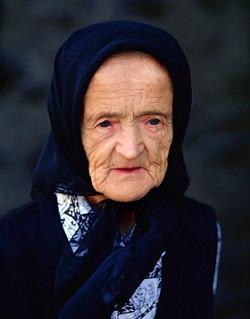Using AI to control energy for indoor agriculture
30 September 2024
Published online 17 April 2012

Researchers have launched the first national study of people suffering from dementia in Lebanon — where almost 10% per cent of the population is over 65 years old.
The study, to be carried out by researchers from the American University of Beirut, will try to gauge the number of people living with dementia in Lebanon and collect information about how they are at risk. The results will be used to plan future protection strategies for patients and to determine how best to care for people with age-related diseases.
"Older people are marginalized in the health policy-making process in Lebanon." says Monique Chayaa, an epidemiologist at AUB who is leading the study. "In the case of dementia, the magnitude of the burden is even larger."
In Lebanon, people living with dementia are poorly understood and stigmatized, explains Chayaa, leaving caregivers to often cope with the physical and emotional stress alone with little or no support from the community or the government.
Lack of education and awareness for patients and caregivers across the Arab world means dementia is usually only discovered at later stages, making it harder to manage, says Hisham Montaser, a neurologist at 6th of October Hospital on the outskirts of Cairo. "Family members often misinterpret early dementia symptoms so they end up only seeking medical advice at later stages," adds Montaser.
The study, funded by the US National Institutes of Health and National Institute on Aging, will observe 2,500 people 65 years old and above from different Lebanese cities for a year. It will form part of the 10/66 Dementia Research Group (DRG), a network of over 100 researchers studying dementia in developing countries where its impact has not been assessed.
Work is underway to establish whether the 10/66 DRG diagnostic algorithm will work within the Lebanese linguistic and cultural context. A pilot project has begun in Beirut and Nabatieh, a city in southern Lebanon.
According to the World Alzheimer Report 2010, there will be a 125% increase in people suffering from dementia by 2030 in the Middle East and North Africa (MENA) region, due to a quickly ageing population.
doi:10.1038/nmiddleeast.2012.57
Stay connected: